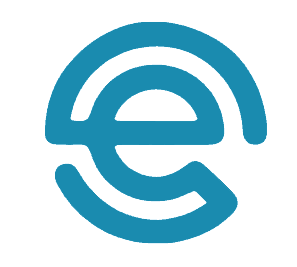Comparing Top eCommerce Platforms in 2025

The eCommerce landscape is constantly evolving, and 2025 presents a dynamic environment for businesses seeking to establish or expand their online presence. Choosing the right eCommerce platform is crucial for success, as it impacts everything from ease of use and scalability to customer experience and future growth potential. This comprehensive guide compares leading platforms, highlighting their strengths, weaknesses, and suitability for various business needs, helping you make an informed decision for your online store in 2025.
Shopify: The All-in-One Solution
Shopify remains a popular choice for its user-friendly interface and comprehensive suite of features. Its drag-and-drop website builder simplifies the creation of professional-looking online stores, while its extensive app store offers readily available solutions for various functionalities like marketing, shipping, and payment processing. Shopify’s robust features extend to inventory management, order fulfillment, and customer relationship management, making it a one-stop shop for many businesses. However, the platform’s popularity translates into higher subscription costs for more advanced features, and its reliance on third-party apps can sometimes lead to compatibility issues. Shopify excels for businesses seeking a streamlined, all-in-one solution, especially those with limited technical expertise.
WooCommerce: The WordPress Powerhouse
WooCommerce, a plugin for WordPress, offers a cost-effective solution for businesses with existing WordPress websites. It’s highly customizable, allowing for tailored website design and functionality. The plugin’s strength lies in its compatibility with a vast array of WordPress themes and plugins, offering unparalleled flexibility. However, managing WooCommerce can be more complex than using a dedicated platform like Shopify. Businesses should be prepared for a steeper learning curve if they lack technical expertise. WooCommerce is a strong contender for businesses that already have a WordPress presence or value complete website control, particularly those with specific technical needs and a desire for maximum customization.
Magento: The Scalable Enterprise Solution
Magento is a robust, enterprise-grade platform known for its scalability and flexibility. It’s ideal for large businesses with complex inventory management needs, high transaction volumes, and extensive customization requirements. Magento’s adaptability allows for intricate configurations and integrations with various systems. However, the platform’s complexity often translates to higher development costs and a steeper learning curve for technical teams. While Magento offers unparalleled scalability, it’s not the most user-friendly option for beginners or smaller businesses. This makes it a suitable choice for established businesses seeking maximum control and scalability, even if it requires a larger investment of time and resources.
BigCommerce: A Robust, Feature-Rich Option
BigCommerce provides a feature-rich platform that combines ease of use with robust capabilities. Similar to Shopify, it offers a user-friendly interface and a robust app marketplace. BigCommerce’s strengths include its comprehensive inventory management tools, marketing integrations, and excellent customer support. While it often comes with a higher subscription cost than Shopify, especially for more advanced features, BigCommerce’s feature set often justifies the price for businesses requiring a high level of control and flexibility. It’s particularly suitable for businesses seeking a balance between affordability and advanced functionalities.
Key Comparison Factors
- Ease of Use: Shopify and BigCommerce are generally easier to use for beginners, while WooCommerce and Magento require more technical expertise.
- Scalability: Magento excels in scalability, while Shopify and BigCommerce offer robust options for growing businesses.
- Customization: Magento provides the most customization options, followed by WooCommerce, then Shopify and BigCommerce.
- Cost: WooCommerce is often the most cost-effective option, while Magento can have significant development costs.
- Support: Each platform offers varying levels of customer support, which should be carefully evaluated.
Conclusion
Choosing the right eCommerce platform in 2025 depends heavily on specific business needs and resources. Shopify is an excellent all-in-one solution for beginners, while WooCommerce is a cost-effective choice for WordPress users. Magento excels for large-scale enterprises needing maximum scalability and customization. BigCommerce provides a robust middle ground, offering a good balance of features and ease of use. Carefully weigh the pros and cons of each platform, considering factors like budget, technical expertise, anticipated growth, and specific business requirements, to make an informed decision that fosters long-term success for your online store.














